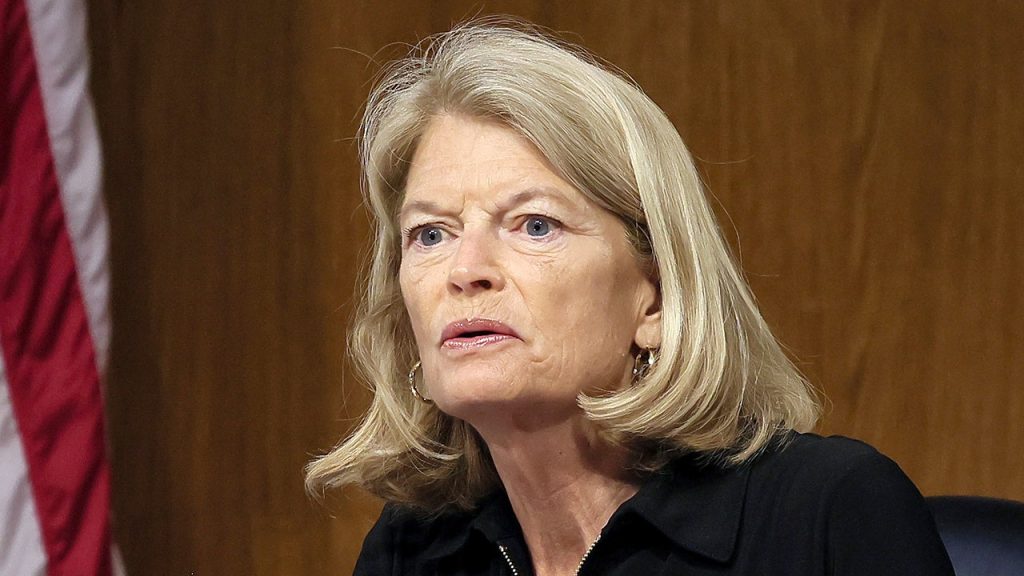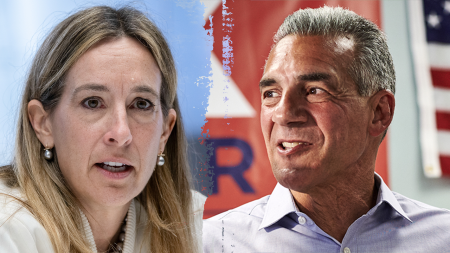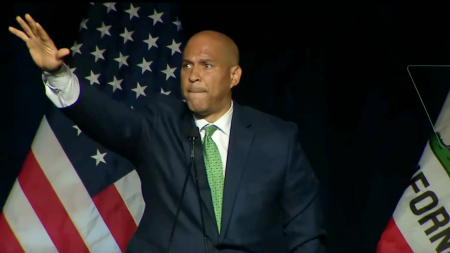Sen. Lisa Murkowski of Alaska, a prominent figure in the Republican Party, recently engaged in a nuanced discussion about her political identity, suggesting a degree of detachment from strict party labels while simultaneously reaffirming her Republican affiliation. Speaking at a No Labels conference, Murkowski expressed a preference for being identified by her commitment to serving her constituents rather than by a specific party designation. She evoked the legacy of Ronald Reagan, positioning herself as more aligned with his brand of Republicanism than with the contemporary iteration often associated with former President Donald Trump. This subtly distanced her from the current trajectory of the GOP, suggesting a divergence in political philosophy. While entertaining the idea of a “no label” approach, Murkowski emphasized her dedication to doing what she believes is right for Alaska, irrespective of party pressures. This stance reflects a willingness to prioritize the needs of her constituents over rigid adherence to party lines.
Murkowski’s comments also addressed the criticism she has faced within the Republican Party, particularly from those who align with Trump’s ideology. She acknowledged being labeled a “RINO” (Republican In Name Only) but firmly reiterated her continued membership in the GOP, stating she has “never shed her party label.” This seemingly paradoxical position – distancing herself from current party trends while maintaining party membership – underscores the complex political landscape in which Murkowski operates. She appears to be navigating a tightrope, seeking to retain her Republican identity while simultaneously carving out a space for independent thought and action, perhaps aiming to appeal to a broader constituency in Alaska beyond the traditional Republican base. This strategy allows her to maintain a foothold within the existing party structure while also signaling an openness to alternative perspectives and approaches.
The senator’s remarks provide insight into the evolving dynamics within the Republican Party, particularly in the post-Trump era. Murkowski’s positioning suggests a potential schism between traditional Republican values and the more populist, nationalist tendencies that have gained prominence in recent years. Her invocation of Reagan serves as a symbolic marker, harkening back to a perceived era of greater consensus and less divisive rhetoric within the party. By aligning herself with Reagan’s legacy, Murkowski implicitly critiques the current state of the GOP, suggesting a desire for a return to what she views as more principled conservative ideals. This also provides a platform for her to appeal to more moderate Republicans who may feel disenfranchised by the party’s current direction.
Murkowski’s political career has been marked by a degree of independence and a willingness to challenge party orthodoxy. Her appointment to the Senate by her father, former Governor Frank Murkowski, followed by her successful re-election campaigns, including a victory against a Trump-endorsed challenger, demonstrates her resilience and political acumen. Her willingness to endorse Nikki Haley in the GOP presidential primary further underscores her independent streak and suggests a preference for candidates who represent a less polarizing brand of conservatism. These actions, combined with her recent comments at the No Labels conference, paint a picture of a politician who is comfortable charting her own course, even if it means diverging from the mainstream of her party.
The “no label” concept, while potentially appealing to some voters who are disillusioned with partisan politics, also presents certain challenges. It can be perceived as lacking a clear ideological foundation, potentially leading to ambiguity on policy positions and making it difficult for voters to discern where a candidate stands on key issues. However, in a highly polarized political climate, a “no label” approach might also offer a way to bridge divides and appeal to a broader range of voters who are tired of partisan gridlock. For Murkowski, this strategy could be particularly effective in Alaska, a state with a history of independent-minded voters and a unique political landscape.
In conclusion, Senator Murkowski’s remarks reflect the ongoing evolution of the Republican Party and the challenges faced by those who seek to navigate a changing political landscape. Her willingness to question party labels, embrace a “no label” identity, and simultaneously reaffirm her Republican affiliation reveals a complex and nuanced approach to politics. This strategy allows her to maintain a connection with her party base while also signaling an openness to alternative perspectives and appealing to a broader constituency. Whether this approach will prove successful in the long term remains to be seen, but it undoubtedly reflects the changing dynamics of American politics and the ongoing search for common ground in an increasingly polarized nation.










